The Ministers of Higher Education and Scientific Research, Health and Population, and the President of Ain Shams University inaugurate the stroke and cerebral hemorrhage unit...The first of its kind in the Middle East
Dr. Ayman Ashour, Minister of Higher Education and Scientific Research, and Dr. Khaled Abdel Ghaffar, Minister of Health and Population, Prof. Mohamed Diaa Zain El-Abedeen, President of Ain Shams University, opened the Stroke Unit in the Department of Neurology and Psychiatry, at Ain Shams University Hospital (Al-Batinah), which is the first therapeutic unit of its kind in the Middle East for the treatment of stroke and cerebral hemorrhage.
This came in the presence of Dr. Ghada Farouk, Vice President of the University for Community Service and Environmental Development Affairs, and Dr. Ali Al-Anwar, Dean of the Faculty of Medicine and Chairman of the Board of Directors of University Hospitals, and Dr. Tarek Youssef, Executive Director of Ain Shams University Hospitals, and Dr. Tariq Youssef, Director of Al Batinah University Hospital.
Dr. Ashour praised the effort made by the university to provide this distinguished medical service to patients, and praised the interest of Ain Shams University Hospitals in stroke disease, its seriousness, and its cause of disability and death, valuing the unit’s capabilities and equipping it with the latest technologies and advanced medical expertise. To become an integrated unit, pointing out that Ain Shams University, as one of the ancient universities with its distinguished cadres in the field of medical sciences, represents a prominent model that we are proud of within the Egyptian higher education system.
His Excellency indicated his pride in his participation during his work at the Faculty of Engineering, at Ain Shams University, in the Medical City project, of which these developments are a part, and the Ministry’s keenness to provide support to complete this major project as quickly as possible. Noting the role of university hospitals in providing medical services to citizens, due to the trust they have among the people, he explained that their role extends to four axes: Education, scientific research, training and treatment, and continuing all possible efforts to conduct continuous expansions, raise the efficiency of buildings and medical equipment in university hospitals, and support the human element in them, to raise the level of service provided to citizens.
His Excellency thanked everyone who contributed to the completion of this achievement, the supporting bodies from civil society, and the Engineering Consulting Office at the Faculty of Engineering, headed by Dr. Yasser Mujahid and the honorable audience of scholars, doctors, specialists, officials and public figures.
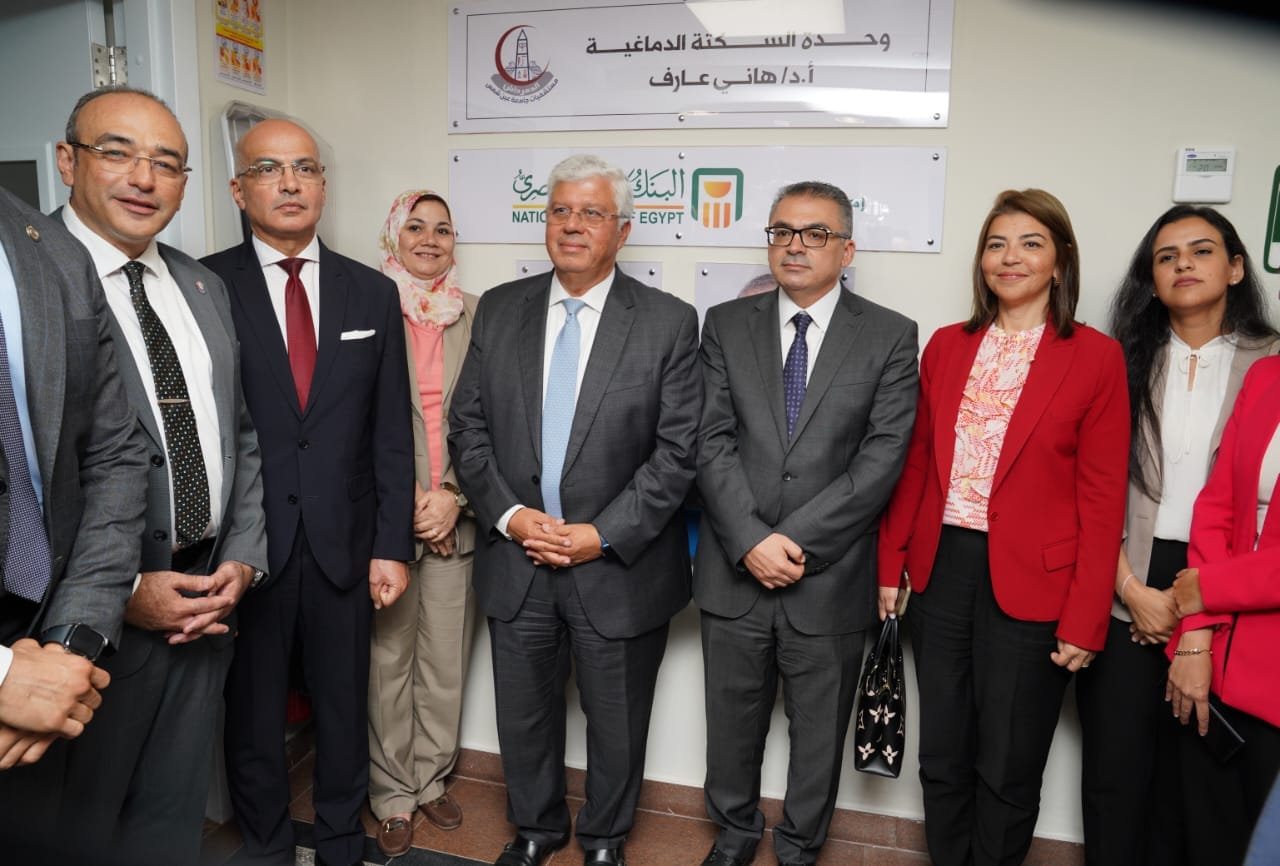 |
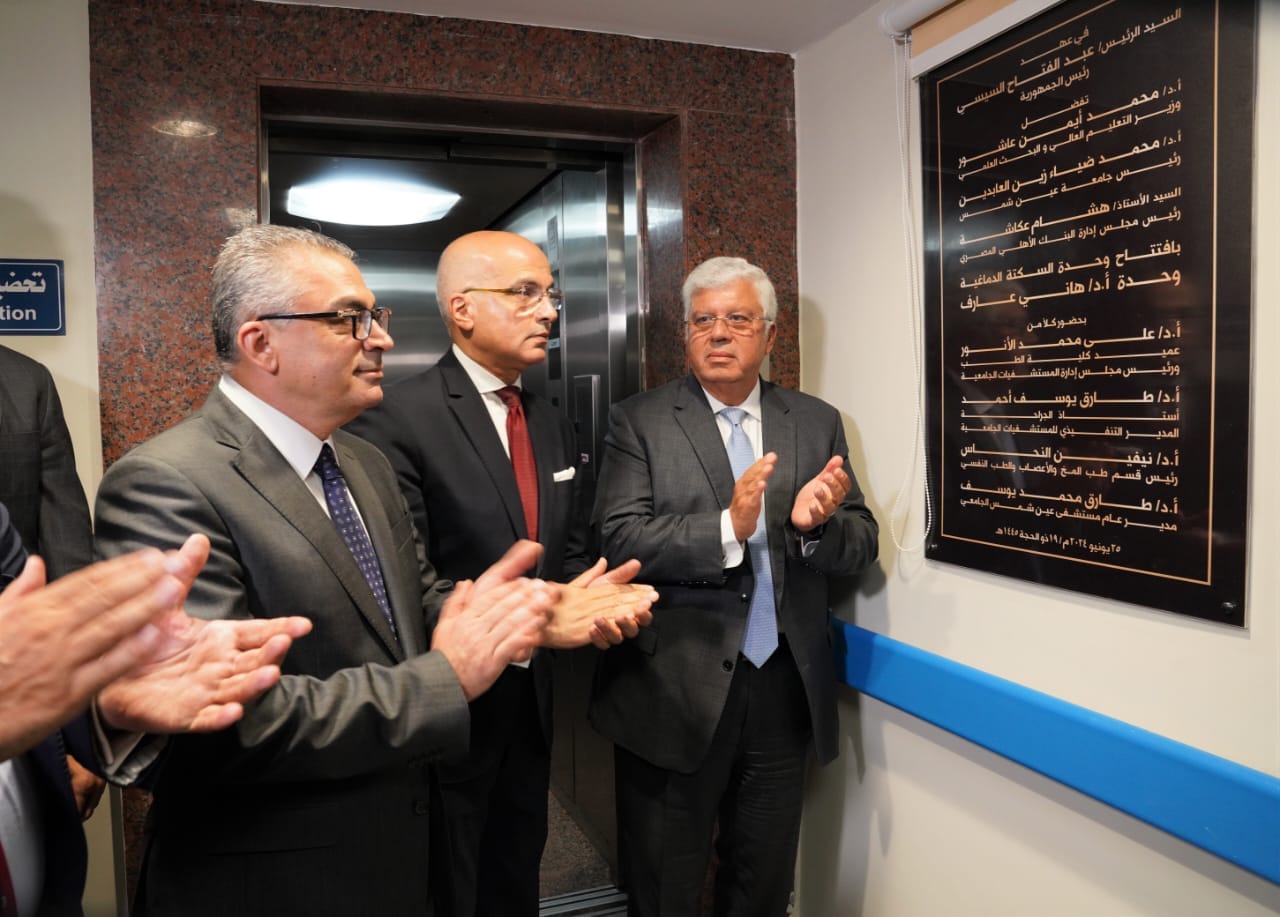 |
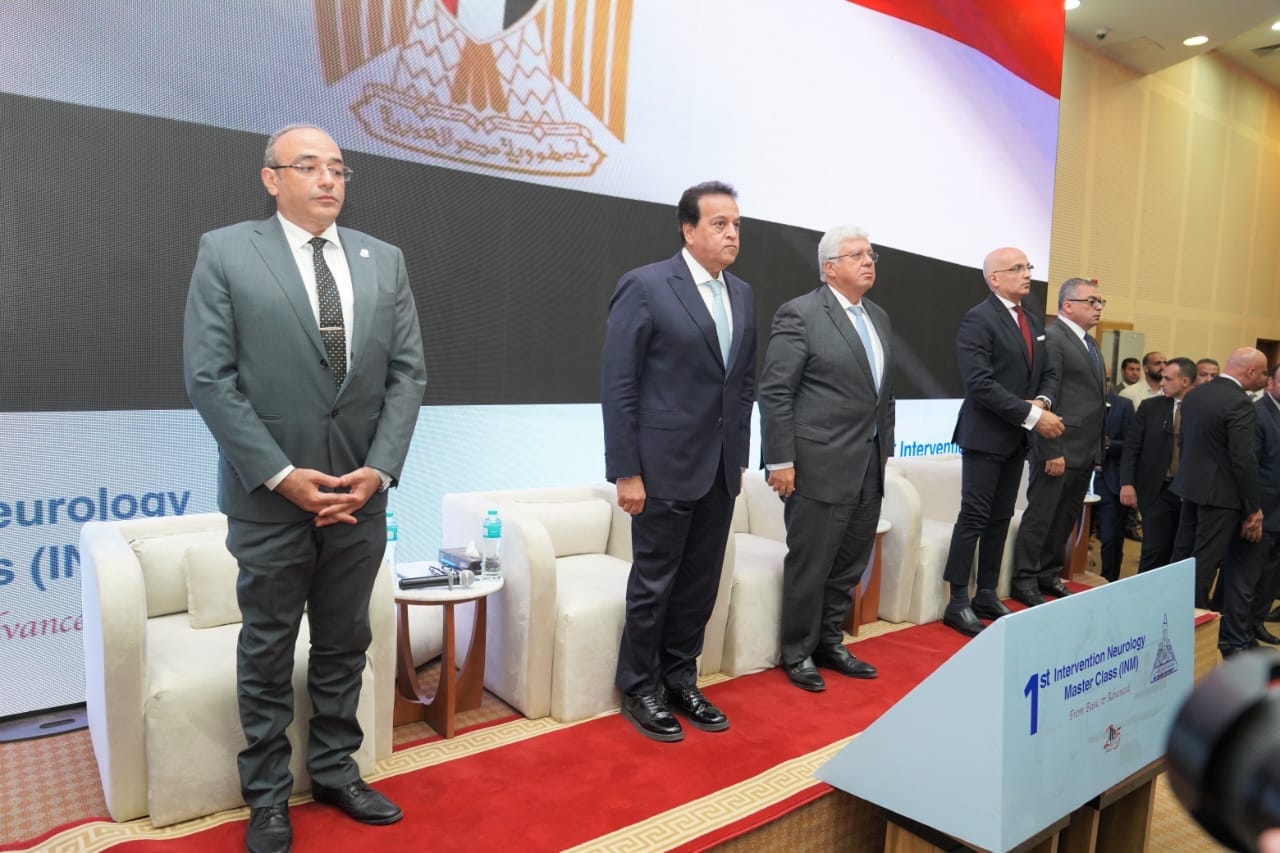 |
||
In his speech during the opening activities, Dr. Khaled Abdel Ghaffar, Minister of Health and Population, praised the efforts made to establish this unit, noting that it is the best example of the cooperation and participation of the private sector and civil society in the medical system. The unit was established in cooperation with the National Bank, Banque Misr, Sehatna Foundation, Saleh Foundation, Zakat fund, and the Egyptian Church.
His Excellency stressed the need to circulate the model of the stroke and cerebral hemorrhage unit at the Faculty of Medicine of Ain Shams University in all governorates, especially remote governorates, to provide the best medical service to the Egyptian patient, through integration between the hospitals of the Ministry of Health and Population, university hospitals, and civil society to establish stroke units, and disseminating the model of the stroke and stroke treatment unit at the Faculty of Medicine of Ain Shams University, in all governorates, especially remote governorates, where more than 15 million people around the world suffer from stroke, stressing that this integration and cooperation will reap the benefits of the Egyptian patient and the scientific research system in Egypt.
His Excellency also referred to the scientific and humanitarian legacy left by Dr. Hani Arif, Professor of Neurology, Secretary of the Egyptian Society of Neurological Diseases, and Head of the Stroke Division, Dr. Ahmed Emad, the former Minister of Health, and all department heads and faculty straff, because of their great contributions, not only at the scientific level, but on the humanitarian level, praising their dedication to serving the Egyptian patient, and their constant endeavor to develop the medical system and provide the latest scientific methods to train doctors to provide the best health service to citizens.
As confirmed by Prof. Mohamed Diaa Zain El-Abedeen, President of Ain Shams University, on the Egyptian state’s endeavor to achieve sustainable development in all sectors of the state and implement “Egypt Vision 2030”, as developing the health sector and ensuring the quality of services provided to Egyptian citizens are the state’s priorities and is witnessing a major boom at the level of the republic, so that all Egyptians can enjoy a safe, healthy life, through an integrated health system characterized by availability, quality, and comprehensive health coverage for all citizens, which confirms Egypt’s leadership in the field of health services in the Arab world and Africa.
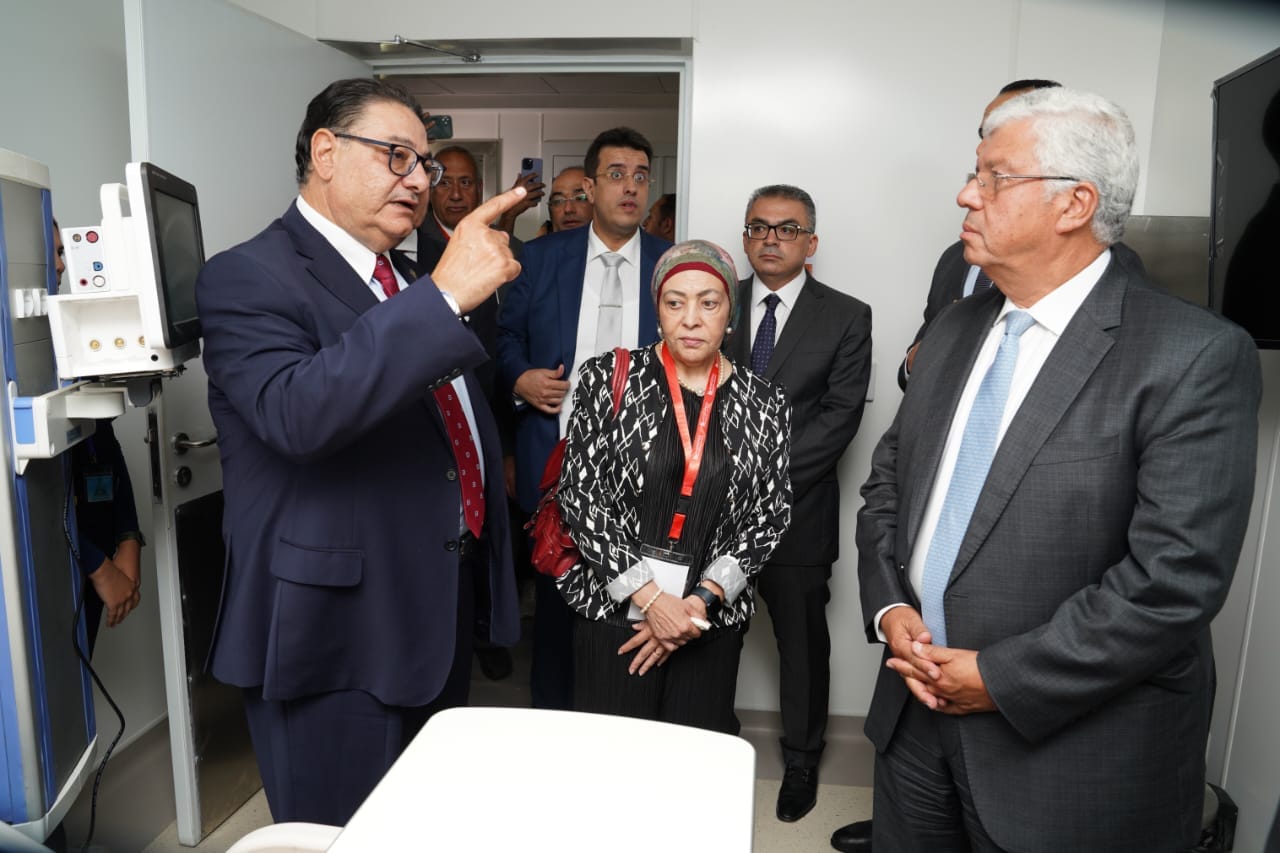 |
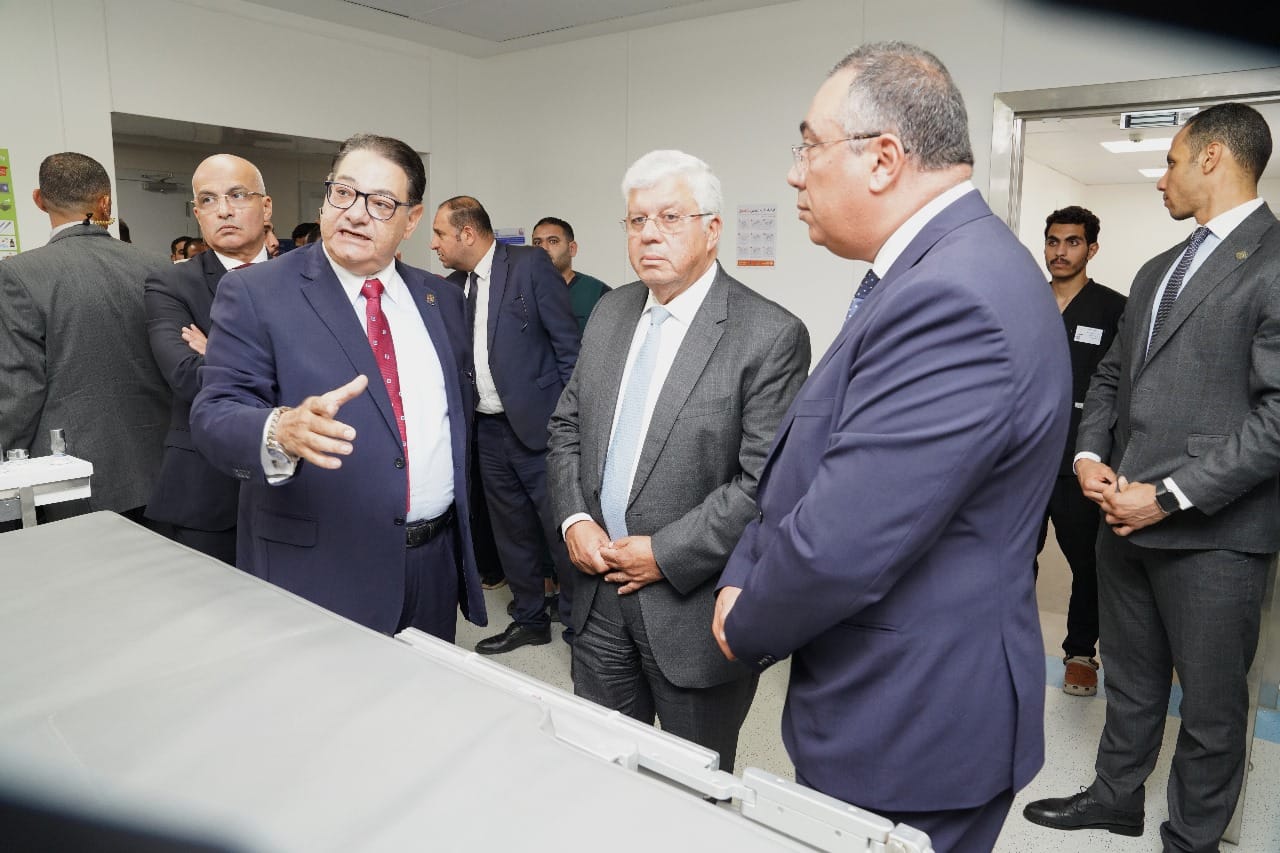 |
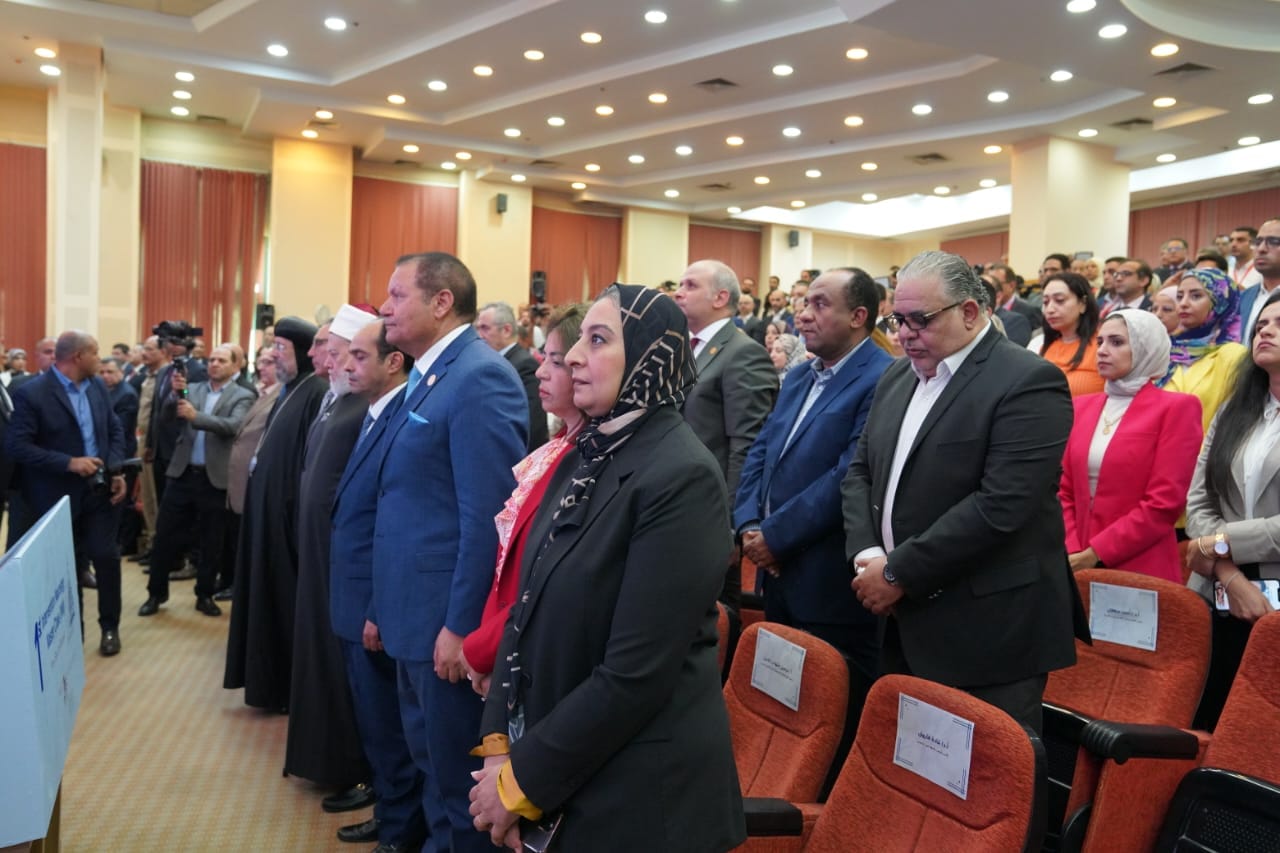 |
||
Dr. Mohamed Diaa, appreciated the continuous support of His Excellency President Abdel Fattah El-Sisi, President of the Republic, and the state agencies, especially the Ministries of Health and Population, and Higher Education and Scientific Research. He also thanked all partner civil society institutions for their continued support of Ain Shams University Hospitals (Demerdash), which indeed deserves all the support given the great role it plays in serving the Egyptian patient, as it receives between 12 and 15 thousand patients daily in outpatient clinics in addition to inpatient department patients.
He also confirmed the opening of a unit for the treatment of Clots, brain hemorrhage and stroke It represents a new hope for stroke patients, which affects hundreds of thousands of patients annually, in addition to those who suffer from its complications.
His Excellency also stressed the university’s keenness to equip the new stroke, cerebral hemorrhage and treatment unit with the latest medical devices, which include the latest device out of 10 cerebral catheterization devices in the world, becoming the first of its kind in the Middle East, in addition to the latest rehabilitation devices for stroke patients. This is in addition to the unit’s work team, which includes an elite group of the largest neurology professors with experience in the field of stroke treatment.
He also explained the tireless endeavor of Ain Shams University Hospitals to keep pace with everything that is new and advanced in the medical field in order to provide distinguished health service to the Egyptian citizen, adopting development efforts to include infrastructure, equipment and training workers, and adopting foundations and systems of international standards for accreditation, by signing cooperation protocols with many bodies, including the Health Accreditation and Control Authority, apply quality standards, join the comprehensive health insurance system, and apply specific standards.
His Excellency confirmed that Ain Shams Medical City will soon achieve the dream that is about to come to an end, which coincides with Ain Shams University’s celebration of the diamond jubilee of the 75th anniversary of the establishment of Ain Shams University. Many development steps were taken in the hospitals, as the infrastructure development was completed, so that the Medical City became an integrated medical edifice that includes a group of old hospitals that are being developed, and new ones that are being developed, so that the Medical City becomes a witness to the university’s interest in raising the efficiency and quality of health care, including It emphasizes the role of the university and its responsibility towards our country and our society and its national duty in providing the best medical service to the Egyptian citizen, and the role of human cadres and the human ability to give, as it is the primary factor in success.
Dr. Ali Al-Anwar, Dean of the Faculty of Medicine, confirmed that Ain Shams University Hospitals play a great role in society under the slogan: “Treating all patients without distinction between race, gender, or color,” and that the development witnessed by hospitals has continued for years of effort and fatigue, as institutional development based on a systematic plan that has been faithfully implemented, pointing out that the success we are achieving today is the result of many years of effort in which everyone participated. It is expected to be completed with the opening of the medical city, praising the support of Prof. Mohamed Diaa to complete and support the development process.
Dr. Tarek Youssef, Executive Director of Ain Shams University Hospitals, expressed his happiness and pride in opening the unit after its development. He explained that developing the unit is part of the Ain Shams Medical City development plan, which includes 3 axes: The main axis is raising hospital infrastructure, increasing efficiency, and fighting fires. The second is replacing and renovating old buildings. The third axis is constructing new buildings, including: Children's Surgical Hospital, New Emergency Hospital, and Blood Bank.
His Excellency valued the efforts of cooperation with civil society institutions and the provision of financial support from the National Bank, Banque Misr, and the Sehatna Foundation, as well as through internal self-resources and economic treatment, in order to achieve the accreditation plan for all hospitals.
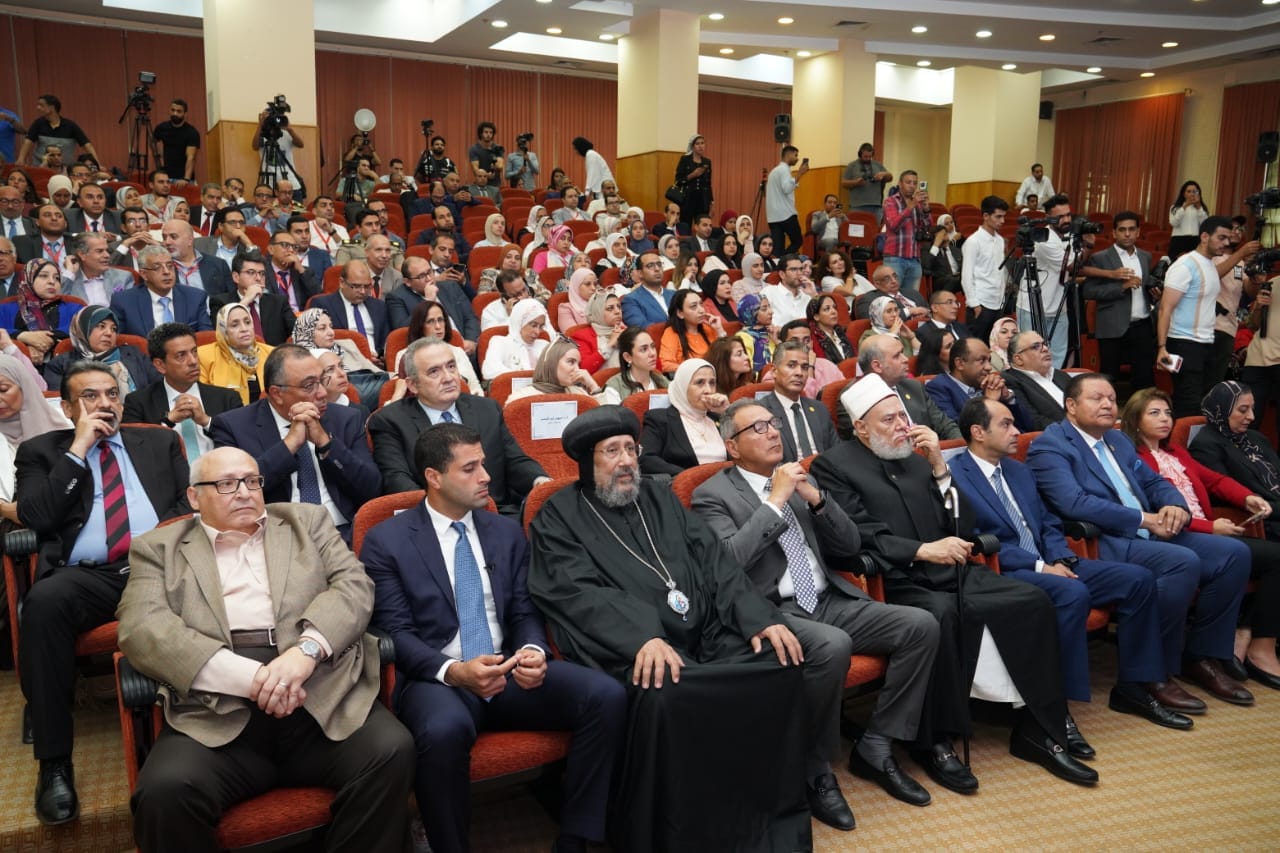 |
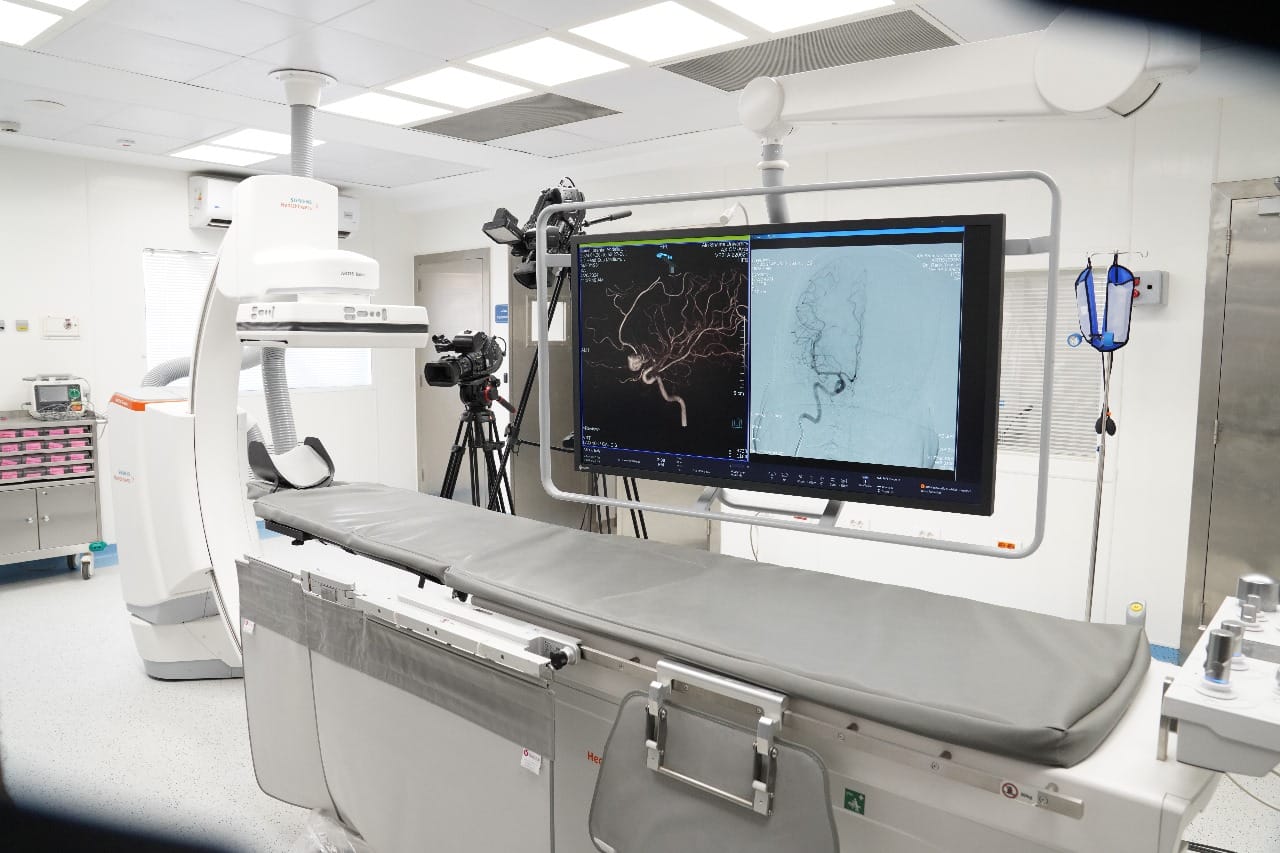 |
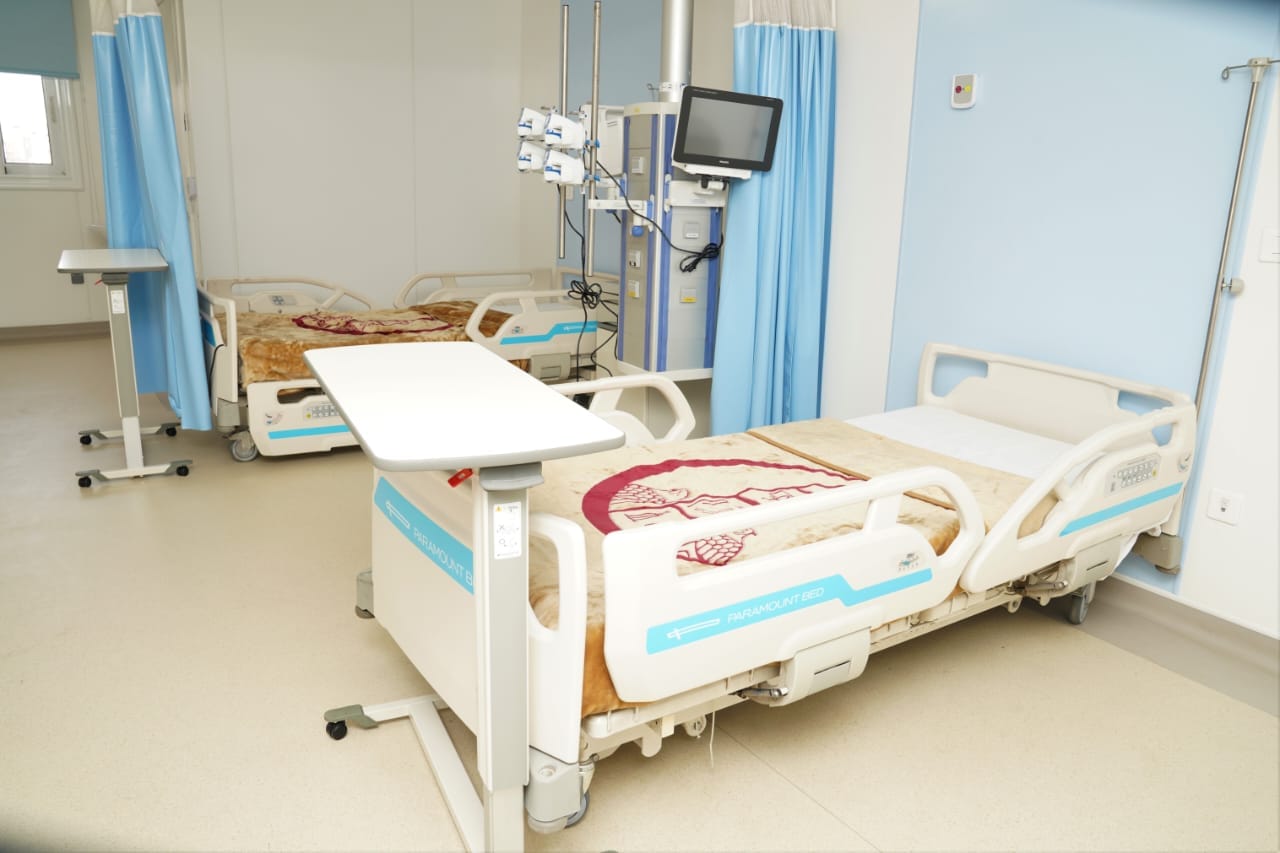 |
||
Dr. Tarek Youssef, Director of Al Batinah Hospital, noted the continuous development that Ain Shams University Hospitals are witnessing to provide the best medical service in university hospitals. He spoke about the establishment of Ain Shams Al-Jarhi and Al-Batiny Hospitals, which are among the oldest university hospitals and include 6 general internal medicine departments, 6 surgery departments, and 8 intensive care departments. There are 6 intermediate care departments, and the number of visitors to the hospital exceeds approximately 48,000 patients annually between outpatient clinics, reception, and patient care, while receiving approximately 5,000 patients for cardiac care and is expected to reach 7,500 patients after development.
He explained the project to develop the infrastructure of the University Internal Medicine Hospital, develop the hematology and marrow transplant care unit, develop the chest care and endoscopy unit, renew cardiac intensive care, develop the dialysis unit, and the stages of developing the stroke unit. To reduce the number of stroke cases in Egypt, which includes 25 stroke care beds, patient rooms, isolation rooms, and a number of specialized units.
Dr. Ahmed Al-Basiouni, Director of the Stroke Unit, added that stroke is the first cause of disability in the world and the second cause of death, and the cost of treating the disease amounts to about 30 billion euros in the European Union and 70 billion dollars in the United States of America.
He stated that approximately 10,000 patients suffering from stroke visit Ain Shams University Hospitals annually, as the new unit allows approximately 1,500 patients to be detained and receive timely treatment instead of 400 patients previously.
He explained in his speech that the new unit is distinguished by its hybrid device that performs diagnostic and therapeutic procedures with existing human competencies, and represents a tremendous opportunity in accuracy and speed, which provides an opportunity to treat and save the lives of thousands of patients afflicted with this disease, so that Ain Shams University Hospitals ranks first in the republic for treating more Intractable cases, as stroke treatment depends on speed and accuracy.
It is noteworthy that the unit includes the most modern catheterization device in the world, as one of only 10 copies in the world and has no parallel in the entire Middle East region. It is characterized by unprecedented technologies accompanied by the use of artificial intelligence to analyze patient data, as well as the latest radiology and medical analysis devices, in addition to the latest rehabilitation devices for stroke patients.
This is in addition to the unit’s work team, which consists of an elite group of the largest neuroscientists with experience in the field of stroke treatment.
The opening was attended by His Eminence Bishop Jeremiah, General Bishop and Head of the Coptic Orthodox Cultural Center, Dr. Mohamed Latif, CEO of the Egyptian Health Council, Dr. Ali Mahran, Chairman of the Senate Health Council, Dr. Ahmed Taha, Chairman of the Board of Directors of the General Authority for Health Accreditation and Control, His Eminence Dr. Ali Gomaa, former Grand Mufti of Egypt and Chairman of the Fatwa Council of the People’s Assembly, Dr. Samia Abdo, representing Major General Bahaa El-Din Zidane, Chairman of the Egyptian Unified Purchasing Authority, Mr. Mohamed El-Atreby, Chairman of the Board of Directors of Banque Misr and Chairman of the Egyptian Banks Union, and Dr. Abdel Wahab Ezzat, Secretary of the Council of Private Universities, former President of Ain Shams University, and Dr. Osama Abdel-Hay, Head of the Doctors Syndicate, A. Saif Shaker, representative of the Sehatna Foundation, Dr. Muhammad Dhahi, Chairman of the Health Insurance Authority, and Dr. Walid Anwar, Secretary of the Supreme Council of University Hospitals, A. Nermin Shehab El-Din, Head of the Community Development Sector at the National Bank of Egypt, Prof. Hala Sweid, Vice Dean of the College of Medicine for Community Service and Environmental Development Affairs, Dr. Essam Fakhry, Deputy Executive Director of University Hospitals, and Dr. Ayman Saleh, former Vice President of the University for Postgraduate Studies and Research, and an elite group of doctors, general directors of university hospitals, their deputies, and department directors.
At the conclusion of the celebration, a group of professors and scientists at the faculty were honored for their contributions in the field of medicine, as well as the supporting bodies. Ms. Nermin Shehab El-Din, representative of the National Bank, and Mr. Saif Shaker, representative of the Board of Trustees of the Sehatna Foundation.


.svg)

